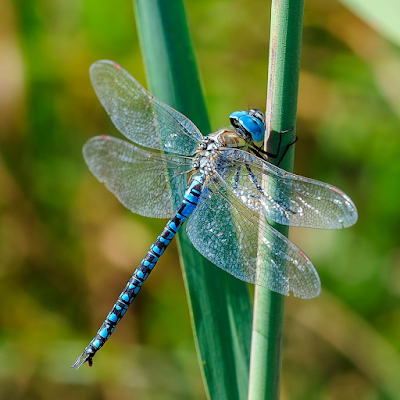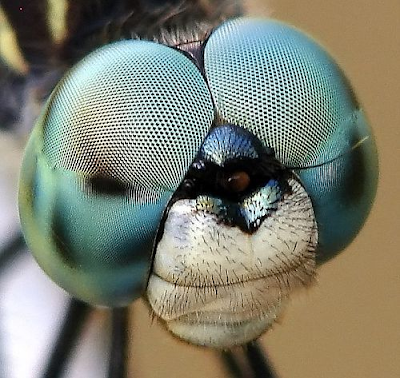We’re three weeks from our departure date, with to-do, provision and packing lists on our minds. Yesterday we removed the boat’s winter cover, reconnected the batteries and solar panel and tested the electrical system.
When we were in California last week we acquired matching dragonfly ball caps for the next phase. I don't believe that we've posted before why we named our boat Dragonfly, but the simple reasons are that we really like them and the name fit our vessel. Dragonflies are beautiful to behold and have an almost magical quality about them. They are harmless to humans and enormously beneficial in controlling populations of biting and stinging insects that annoy us and spread disease.
When we acquired our MacGregor 26X in 2018, she was called Anticipation, a name we both disliked. There are time-honored nautical superstitions surrounding the renaming of a ship and many pleasure boaters still perform complicated rituals to purge the old name and christen the new. Legend and tradition indicate that Poseidon maintains a list of every vessel in the Ledger of the Deep, and all changes must be made properly to avoid confusing and angering the god of the oceans. There is a lengthy incantation for purging the old name from the ledger and another to record the new one, with precise rituals and offerings at all stages. For many, this is serious business; for others, it's a fun and memorable event, and a reason to throw a party on their new-to-them boat.
We are not superstitious people and believe that Poseidon has better things to do than keep track of the names of the thousands of 26-foot MacGregors and other small boats out there. We renamed Dragonfly without ceremony and fanfare and so far don’t think that we’ve upset any gods. We did perform one of the rituals on the list that seemed logical, and removed all traces of the former name from the boat.
Our boat’s graphic was designed by our daughter, Amy, and is proudly displayed on both sides of the hull and on our helm cover. We also have the boat name and homeport on the transom, so overtaking vessels can identify and hail us by name on the radio when passing.
In case you're curious, here are some fun facts about our favorite insect and boat’s namesake:
- Dragonflies live on every continent except Antarctica.
- They have been around for 300 million years—longer than dinosaurs—and were one of the first winged insects to evolve. Fossilized dragonflies have been found with two-foot wingspans.
- They are voracious predators, both as aquatic larvae and adults. Dragonfly nymphs will eat almost anything, including each other. Adult dragonflies can consume one-fifth of their bodyweight per day.
- They are amazingly efficient hunters, catching 90-95% of the prey they pursue (lions typically catch 20-25%, while sharks are around 50%).
- Their wings are translucent, and they can fly in any direction, even upside down. They can pivot, hover, eat and mate in mid-air. Dragonflies are the fastest-flying insect, with top speeds of 35 mph.
- They have incredible vision—their eyes take up a majority of the head and contain 30,000 lenses, giving them a near-360-degree field of view. Dragonflies have excellent color vision and can see ultraviolet light.
- They have six legs but cannot walk; they only use their legs to perch and hunt.
- Dragonflies do not sting or bite. They have sharp, serrated mandibles for tearing apart and eating prey, but rarely break through human skin in the uncommon instances where they attempt it.
Here are a couple more dragonfly photos:
 |
| Source: FreeImage.com |
 |
| Source: Flickr |
Bonus Question Answer:
Giants - San Francisco (baseball) and New York (football).
Jets - New York (football) and Winnipeg (hockey).
Kings - Los Angeles (hockey) and Sacramento (basketball).
Panthers - Carolina (football) and Florida (hockey).
Rangers - Texas (baseball) and New York (hockey)
Double Bonus Points: Lions - Detroit (football) and British Columbia (Canadian football).




No comments:
Post a Comment